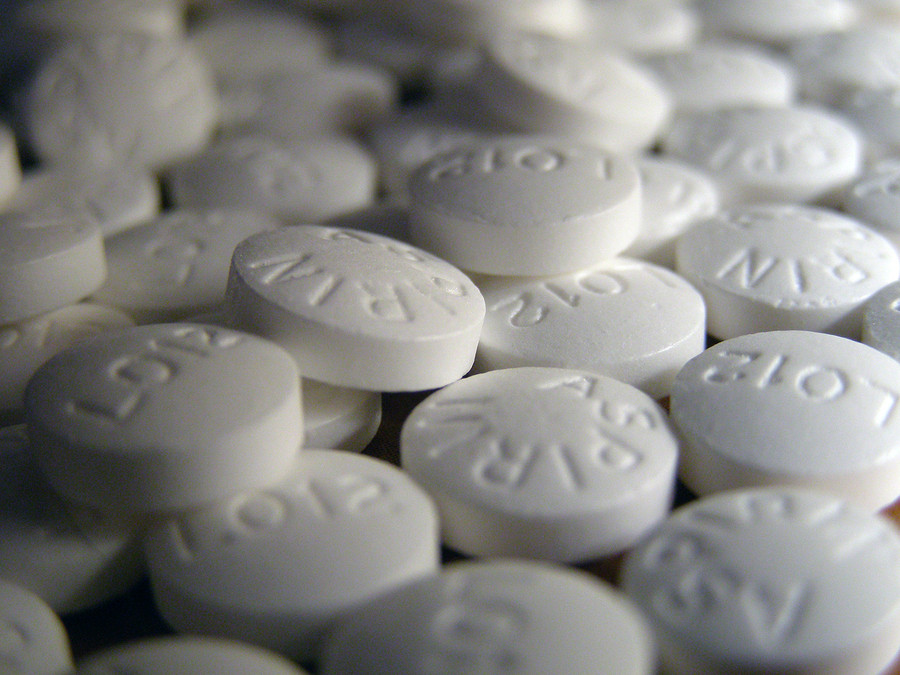Can aspirin protect against cancer?

The other day, a fit 50-year-old man came to me for a visit to review his health. As we discussed his (generally good) efforts to take care of himself, he said, “I’ve been wondering if I should take an aspirin every day. I read somewhere that it can prevent cancer.”
As a clinician, I really love it when people come in with questions that stretch my thinking. I have a stock set of answers to the “does aspirin prevent heart disease” question, but I didn’t have an easy answer to the cancer prevention question. What were the data? What should I be recommending? Is it true for everyone? Or maybe just for some people?
I turned to a respected source of information: the United States Preventive Services Task Force. This group of volunteer medical experts can be convened by the Agency for Healthcare Research and Quality to review the evidence about many topics in preventive care and give recommendations about various practices, depending on their interpretation of the research. For example, counselling someone to stop using tobacco is a Grade A recommendation — that is, the task force feels there is good evidence that the benefit of such an action is substantial.
I reviewed the recent clinical guidelines on this topic and found out that, well, the cancer/aspirin question is a complicated one. Here is what I learned:
- There are no good data that aspirin will prevent cancers other than colon cancer. While that evidence may be forthcoming, we don’t have it yet.
- Aspirin can help decrease the risk of colon cancer, but the benefits might be quite delayed. People have to be willing to take it for at least 10 years before the benefits begin, and they might not see the benefit in cancer prevention, specifically, for another five to 10 years after that. That means two things: they have to be able to tolerate aspirin for a long time, and, perhaps more importantly, the benefit of taking the aspirin up front has to outweigh the risk.
Therefore, the group of people who might benefit from taking a daily aspirin to prevent colon cancer is “adults aged 50 to 59 years who have a 10% or greater 10-year risk of developing cardiovascular disease, are not at increased risk for bleeding, have a life expectancy of at least 10 years, and are willing to take low-dose aspirin daily for at least 10 years.” If you are over 60, then the decision is more individual, according to the task force.
Whoa. That’s a mouthful. So what do I tell this guy sitting in front of me asking this great question?
Well, for him, the answer was, “I don’t think so.” Why? For starters, his risk of having a heart attack in the next 10 years is less than 10%. That means that the short-term risk of taking a daily aspirin is higher than the near-term benefit of preventing cardiac disease. And aspirin’s role in preventing colon cancer is so very long-term that it almost doesn’t play into the equation at all!
In truth, while the nuances of recommending aspirin for its potential health benefits are intellectually quite interesting, I think they are ultimately frustrating for both patients and doctors from a practical standpoint. Aspirin is not a free lunch. Maybe it will help prevent colon cancer in the long term, but, as a physician, I am always aware of its short-term risks, which can include stomach trouble, including bleeding, as well as an increased risk of stroke for some.
For this patient — and probably for many of you — I would go on to say that aspirin may not be the answer for cancer prevention. Then we would discuss other ways to prevent and detect colon cancer. I would remind you to make sure you were doing appropriate colon cancer screening with colonoscopy, sigmoidoscopy, or fecal occult blood testing. We would talk about diet and exercise. And we would agree to keep an eye on the data going forward, hoping, as always, to find a great option that keeps us as healthy as possible for as long as possible.
About the Author

Lori Wiviott Tischler, MD, MPH, Assistant Professor of Medicine, Harvard Medical School
Disclaimer:
As a service to our readers, Harvard Health Publishing provides access to our library of archived content. Please note the date of last review or update on all articles.
No content on this site, regardless of date, should ever be used as a substitute for direct medical advice from your doctor or other qualified clinician.















